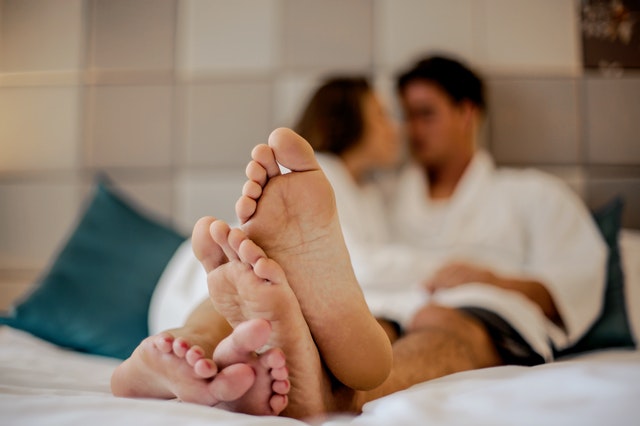Married couples experience ups and downs in their marriage, which effect, among other things, their sexual desire. Work, children, and maintaining the home, create a busy and tense life which often comes at the expense of their love life and couplehood. According to the literary definition, desire is a feeling of passion, lust, or drive which makes us want sexual activities and achieve a sexual outlet. The source of this feeling is in the brain, and it is similar to other natural desires, such as hunger. According to its psychiatric definition, a reduction in sexual desire is called Hyposexual Desire Disorder (HSDD).
The causes
There are several reasons for a reduction in sexual desire, from physiological reasons – such as the middle age, hormonal changes, and age-related diseases, to environmental changes connected to experiences and events in day-to-day life. “There are many reasons for a drop in sexual desire. They can be divided into emotional causes, such as depression, tension, and anxiety, difficulties in the couple relationship, low self-esteem, problems with body image, tiredness and exhaustion, family problems, crises or past trauma, and physical causes – various illnesses, taking certain medications, breastfeeding, menopause, etc. When treating problems of reduced sexual desire, we must look at all of these and examine them individually, together with our partner or the person sitting opposite us, wherever they are at,” explains Hadas Porat, a social worker and sexologist at the Hillel Yaffe Medical Center Sexual Health Clinic.
The therapy
“Therapy for problems of sexual desire is difficult and complicated, since desire is something evasive. For those who are middle aged or those suffering from a hormonal deficiency, the doctor can prescribe a hormonal medication, but the main treatment focuses on building a new sexual plan for the couple. We usually try and understand together what each of them likes and what gives them a good feeling,” explains Miri Kreisman, a psychotherapist and sexologist at the Hillel Yaffe clinic. “Many people – both men and women – think that penetration is the heart and driving force of sexual relations. During the therapy we expand the concept of ‘sex and sexuality’ and show couples that penetration is just one option within sexuality.”
Men and women – What’s the difference?
It is important to understand that there is an essential difference between women and men regarding sexual desire and arousal. While most women want to feel warmth and closeness to their partner, most men, in contrast, need sexual relations to feel warmth and closeness. Moreover, female sexuality is subjective, meaning there is no way to measure female arousal, since there is not always congruence between what the woman feels and her bodily sensations. In complete contrast to male arousal, the woman’s sexual desire is greatly influenced by various environmental factors, such as the annoying boss at work, her difficulties with her children or spouse, her economic situation, and things bothering her such as submitting a presentation on time, an exam, an important meeting, etc.
Porat argues that it is not uncommon that the timing of the therapy is very important, and can in of itself serve as an important therapeutic issue, meaning, what made the couple come for therapy specifically now? Did the problem bother both of them or only one, and what has changed (assuming the problem has already existed for a long time)?

Devote at least one evening weekly to your partner
The statistics
Statistics show that in most cases, it is the woman who have the problem, although in recent years we have seen more and more men who also testify that it is they who suffer from a deficiency in sexual desire. At the same time, it seems that when men have a lack of desire it is usually the result of a different sexual problem, such as one with erection, premature ejaculation, or low body image.
There are solutions available!
Kreisman explains that there are several things you can try yourself, before coming to therapy. “To arouse sexual desire, you can create a ritual of having a one-on-one date at least once a week, when you sit together, without screens or other distractions. You can plan a shared experience, such as cooking dinner together, sport, or a game. You can do “little things” such as surprising with flowers or chocolate. When couples come for therapy to us, we first suggest trying these things, and also teach them exercises which combine physical touch, in which the couple gradually learn to get to know what kinds of touch they enjoy, relearn ‘listening’ to each other and getting close through touch.”
To conclude, they both note: “A drop in sexual desire is well-known and familiar to most married couples. Our daily lives are pressurized and busy, and this often affects our sexual desire. Try to reserve one evening each week which you will devote to your partner, to create intimacy and closeness. If the problem continues and affects your personal life or that of you as a couple, we recommend coming for individual therapy and guidance.”
To schedule an appointment at the Sexual Health Clinic at the Hillel Yaffe Medical Center, please call: 04-7744724.